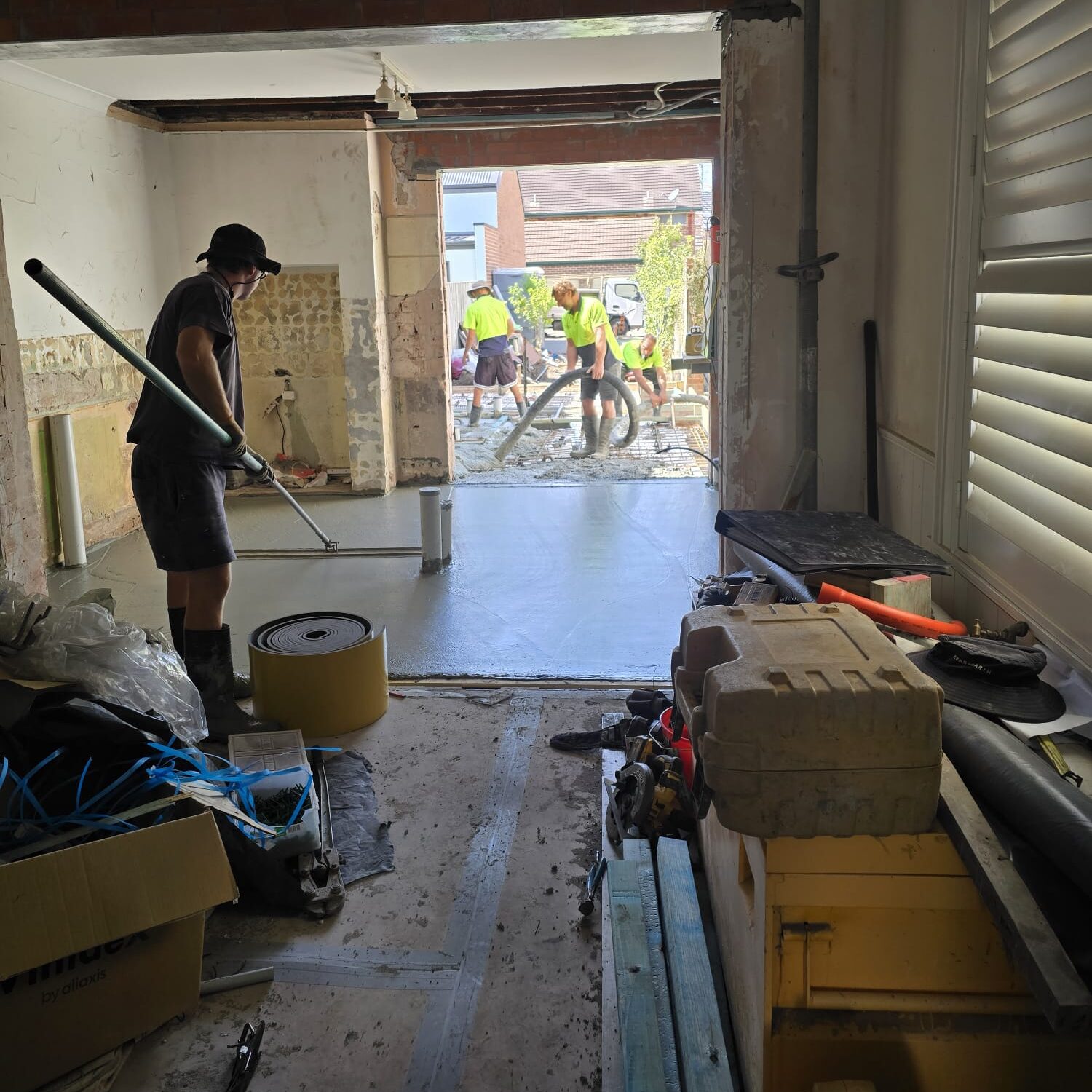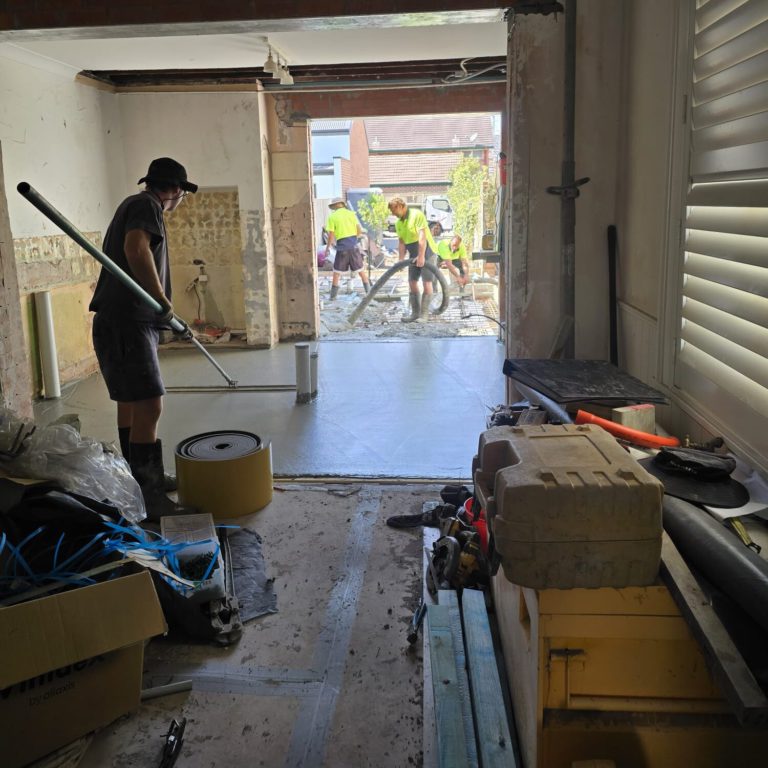Are you gearing up to install a shed slab, develop a new driveway, or establish footings for a home extension? If so, you’ve likely come across the term “cement pump.” But what does this term truly involve, and is it a crucial element for your construction project?
This comprehensive guide offers detailed insights into the process of hiring a cement pump and highlights how its use can substantially enhance your upcoming concrete pour, making the entire process quicker, cleaner, and more efficient.

Understanding the Difference: Cement Pump vs Concrete Pump
In the realm of construction, it is common for individuals to mistakenly use the term cement instead of concrete. As a result, when someone refers to a cement pump, they are typically talking about a concrete pump. This advanced piece of machinery is specifically designed to transport mixed concrete from the delivery truck to the precise location where it is needed for your project.
Concrete pumps are especially advantageous in a variety of circumstances, including:
- Delivering concrete to difficult-to-reach locations, such as behind a house or within narrow spaces
- Eliminating the need for wheelbarrows, which significantly reduces strenuous manual labour
- Ensuring a cleaner and more efficient job site
There isn’t a dedicated machine solely for pumping cement, as cement is merely one component of concrete. Therefore, when preparing to pour a slab or establish footings, what you truly require is a concrete pump. For residential projects, a line pump is typically the most commonly used option.
In What Scenarios Is It Crucial to Use a Cement Pump?
If you find yourself in any of the following situations, it is essential to consider the utilisation of a cement pump (or, more accurately, a concrete pump) to save significant time, energy, and mess:
- Pouring a shed slab in your backyard
- Replacing an existing driveway that has deteriorated over time
- Installing footings for a deck or a granny flat
- Working in tight access or confined spaces where manoeuvrability is restricted
In these scenarios, employing a concrete pump will undoubtedly streamline your project. By using a pump instead of relying on wheelbarrows or attempting to pour directly from the truck, the concrete can be accurately delivered precisely to where it is needed, even if that location is over 30 metres away from the road.
Key Steps for Successfully Hiring a Cement Pump (Concrete Pump)
Securing a concrete pump can be relatively straightforward, but ensuring that you make the right choice can help you avoid unnecessary complications down the line. Here’s a simple yet effective guide to assist you through the process:
1. Define the Specifics of Your Pouring Project
Are you pouring a slab, setting footings, or creating pathways? Understanding the particulars of your project will aid in selecting the appropriate pump size and configuration tailored to your specific needs, ensuring optimal performance during the pour.
2. Accurately Calculate Your Concrete Pour Volume
To determine the required volume in cubic metres, apply the formula (Length × Width × Depth in metres). If you’re unsure how to perform these calculations, our team is more than happy to assist you, ensuring you account for any potential overrun. Here is a guide on how to calculate the amount of concrete you will need, ensuring accuracy in your project planning.
3. Assess Your Access Points for Concrete Delivery
Can we access the site with a hose line? Is there adequate space for a concrete truck? It is critical to communicate any access limitations so we can plan effectively, ensuring smooth operations and avoiding any delays that could disrupt your project timeline.
4. Schedule the Pump (Including Concrete Supply and Labour Services)
At Hunter Concrete Pump Hire, we offer comprehensive support, which includes coordinating the concrete supply, labour, and the pump — all in one seamless package, enhancing your overall experience and ensuring everything runs smoothly from start to finish.
Your Local Experts: Reliable, Transparent, and Efficient Concrete Solutions
If you are located in Newcastle, Maitland, or the Hunter Valley, our team serves as your trustworthy local choice for professional and clean concrete pumping solutions. We provide mini pumps and line pumps specifically designed for residential projects. Our pricing structure is clear and straightforward, offering options for flat rates or hourly rates, ensuring you are fully informed about what to expect.
Regardless of whether this is your first project or you are a seasoned expert, we will guide you through the entire process, ensuring that everything is executed correctly and efficiently from start to finish, providing peace of mind throughout your project.
Common Questions About Cement Pumps Answered
Is it referred to as a cement pump or a concrete pump?
While many individuals call it a “cement pump,” the correct terminology is indeed “concrete pump.” Cement is merely one component of the comprehensive mix utilised in construction.
What are the costs associated with hiring a cement pump?
The rates can vary based on the specifics of your job. At Hunter Concrete Pump Hire, our flat rate starts at $800, or you may opt for an hourly booking. We will help you assess the best option that aligns with your specific job requirements, ensuring optimal value for your investment.
Can I rent a pump without ordering concrete?
Absolutely. However, we can also assist in supplying the concrete mix if you prefer to streamline your project with a single point of contact for all your needs.
Seeking Expert Assistance with Your Concrete Project?
Whether you are preparing for a slab pour, a shed installation, or laying footings for a new build, we are here to help you identify the appropriate pump, calculate the required amount of concrete, and oversee the entire pouring process to ensure everything goes smoothly and efficiently.
The Article: Cement Pump: Understanding Its Use and Importance first appeared on https://writebuff.com
The Article Cement Pump: Key Insights on Its Use and Significance Was Found On https://limitsofstrategy.com




